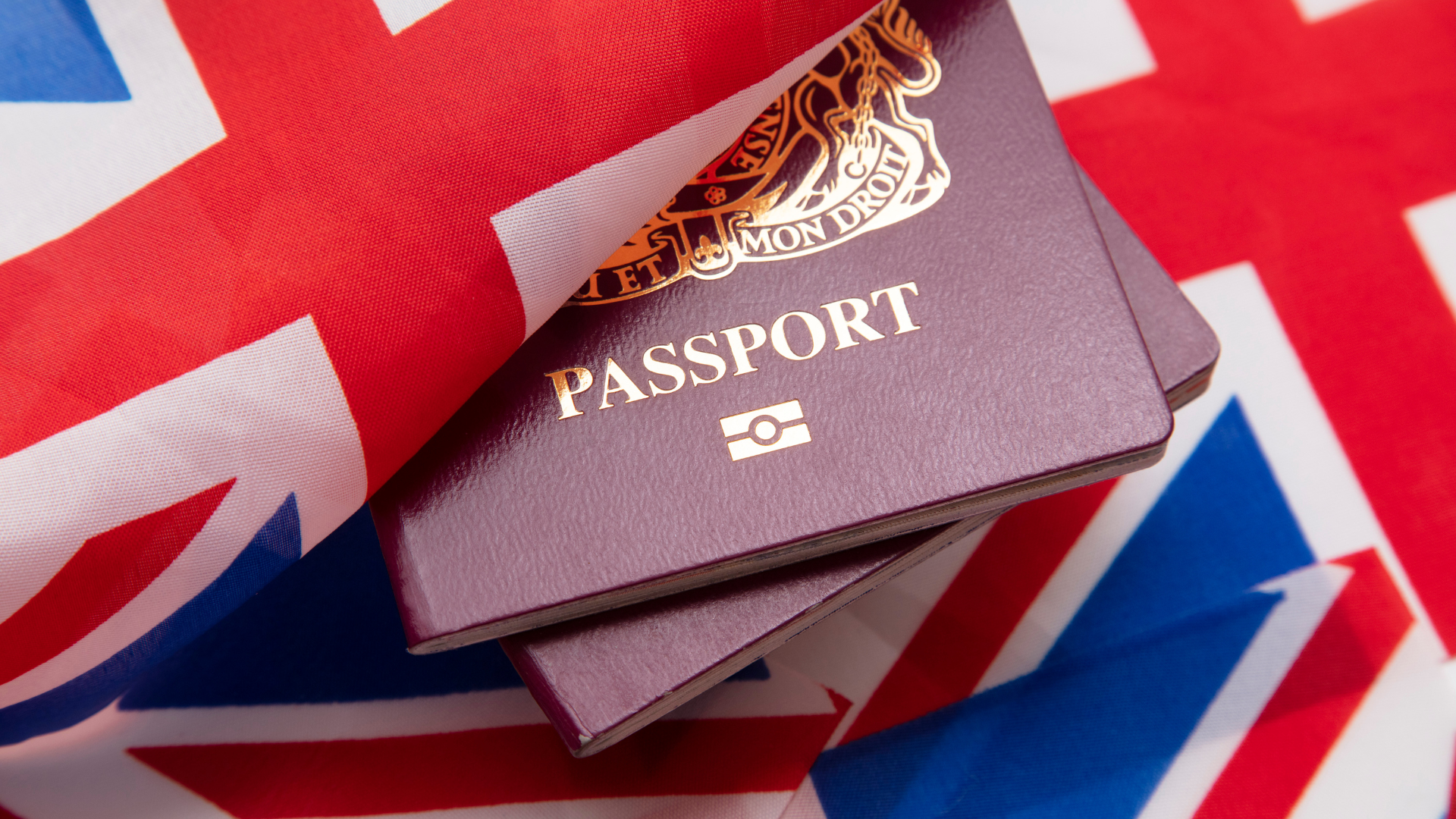If you’re planning a trip from the United Kingdom to the European Union (EU), you may have a few burning questions about your passport and how it relates to travel. Don’t worry; you’re not alone! Navigating the world of passports and international travel can be a tad confusing. In this blog post, and in some of the posts on this travel site, you’ll find a break down of some of the most common questions people have about using UK passports for EU travel. So, grab a cup of tea and let’s get started!
1. Do I Need a Passport to Travel to the EU from the UK?
Yes, you do. Your trusty passport is your golden ticket to international adventures. It’s your key to entering and leaving EU countries, just as it is for most other international destinations. So, if you’re planning to cross the English Channel or hop on a plane to an EU country, make sure your passport is ready and valid. You can use this UK passport checker to ensure that’s the case.
2. How Long Should My Passport Be Valid for Travel to the EU?
Your passport must be valid for the duration of your stay in an EU country. However, it’s recommended to have at least six months’ validity on your passport beyond your planned departure date. This ensures you won’t run into any unexpected issues during your travels.
3. Can I Travel to Any EU Country with My UK Passport?
Great news! With a UK passport, you can travel to all EU countries. There’s no need to worry about country-specific requirements or visas when traveling within the EU. You have the freedom to explore the stunning landscapes of Italy, indulge in French cuisine, or enjoy the historic charm of Prague-all with your UK passport in hand.
4. What About Ireland?
Ireland is a bit of a unique case. While it’s not part of the UK, it’s part of the Common Travel Area (CTA). This means that you can travel to and from Ireland with your UK passport without needing a visa or encountering any passport-related issues.
5. Do I Need a Visa for EU Travel?
As a UK passport holder, you do not need a visa for short visits (up to 90 days) to EU countries. This perk comes courtesy of the UK’s participation in the Schengen Agreement, which allows for easy travel between member countries.
6. Can I Work or Study in the EU with My UK Passport?
If you’re planning to work or study in an EU country, you may need to take some additional steps. While you can enter the EU without a visa, you may need to apply for a residence permit or student visa once you arrive in your destination country. The specific requirements can vary from one country to another, so be sure to research the regulations for your chosen destination in advance.
7. Is There a Maximum Duration for Stays in the EU?
Yes, there is. As a tourist or for business purposes, you can stay in EU countries for up to 90 days within a 180-day period. This rule is designed to accommodate short-term travel. If you plan to stay longer or need to work or study, you should inquire about the specific visa or permit requirements for your destination.
8. How Do I Get Through Immigration?
When you arrive in an EU country, you’ll go through immigration control. It’s a simple process where officials will check your passport and stamp it with the date of entry. They might also ask questions about the purpose of your visit and where you plan to stay. Just be truthful and provide the necessary information.
9. Can I Travel with My Pet?
If you’re planning to take your furry friend along for the adventure, you’ll need to check the specific pet travel rules for the EU country you’re visiting. Generally, you’ll need to ensure your pet is microchipped, vaccinated against rabies, and may need a pet passport. Each country has its own regulations, so plan ahead to avoid any hiccups at the border.
10. What Happens if My Passport is Lost or Stolen While in the EU?
Losing your passport abroad can be stressful, but don’t worry, there are steps you can take to get back on track:
- Report it: Contact the local police and your country’s embassy or consulate to report the loss or theft.
- Get a replacement: Visit your country’s embassy or consulate to apply for a replacement passport.
- Contact your airline: If you’re flying, inform your airline about the situation, as they may have specific requirements for allowing you to board your flight.
11. Should I Take Out Travel Insurance?
Absolutely! Travel insurance is like a safety net for your trip. It can help cover unexpected medical expenses, lost luggage, trip cancellations, and more. Before purchasing a policy, be sure to read the fine print and understand what’s covered, so you can travel with peace of mind.
12. What’s the Deal with Mobile Roaming Charges in the EU?
Good news for smartphone addicts: EU regulations have put an end to excessive roaming charges within the EU. This means you can use your mobile phone just as you would at home without incurring hefty fees. However, it’s always a good idea to check with your mobile provider before you travel to understand their specific policies.
13. Do I Need an International Driving Permit (IDP) to Drive in the EU?
If you plan to drive in the EU, you may need an International Driving Permit (IDP) in addition to your UK driver’s license. The requirements vary from country to country, so check the specific rules for your destination. It’s a good idea to obtain an IDP before you travel, just in case.
14. What Should I Do to Prepare for EU Travel?
To ensure a smooth and stress-free journey, here’s a checklist of things to consider before your EU adventure:
- Check passport validity: Ensure your passport is valid for at least six months beyond your planned return date.
- Visa requirements: Research whether your destination has specific visa or entry requirements.
- Travel insurance: Consider purchasing travel insurance to protect yourself against unexpected events.
- Currency: Familiarize yourself with the currency of your destination and plan your finances accordingly.
- Mobile roaming: Check with your mobile provider to understand roaming policies.
- Health considerations: Consult your doctor about vaccinations or health precautions specific to your destination.
- Driving: If you plan to drive, verify the requirements for an International Driving Permit.
In Conclusion
Traveling from the UK to the EU is an exciting prospect filled with opportunities for adventure. With your UK passport in hand and a bit of preparation, you can navigate the complexities of international travel with ease. So, pack your bags, embark on your EU escapade, and embrace the wonders that await across the Channel! Safe travels!





Leave A Comment